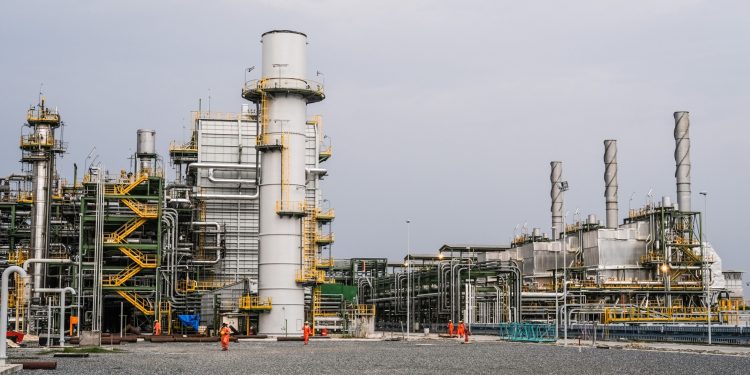Nigeria’s economy has slid into a recession after its Gross Domestic Product (GDP) contracted by 3.62% (year-on-year) in Q3 2020. This is the second consecutive contraction from -6.10% recorded in the previous quarter (Q2 2020).
According to the National Bureau of Statistics (NBS), in Q3 2020, the oil sector contracted by 13.89% (year-on-year), indicating a sharp contraction of 20.38% points compared to the same period last year, and a 7.26% decrease when compared with growth recorded in Q2 2020 (6.63%).
The oil sector contributed 8.73% to the country’s GDP in Q3 2020, down from 9.77% and 8.93%, respectively, in the same period in 2019, and Q2 2020.
The average daily oil production recorded in Q3 2020 stood at 1.67 million barrels per day (mbpd), which was 0.37mbpd lower than the average production recorded in the same quarter of 2019, and 0.14mbpd lower than production volume recorded in Q2 2020.

On the other hand, the non-oil sector in Q3 2020 contracted by 2.51%, 4.36% lower than in Q3 2019, but 3.54% points higher than in Q2 2020
Key sectors that contracted in Q3 2020 in the non-oil segment are manufacturing, trade (wholesale and retail) accommodation and food services, real estate, etc. On the other hand, the growth in the non-oil sector was driven mainly by Information and Communication (Telecommunications), with other drivers being Agriculture (Crop Production), Construction, Financial and Insurance (Financial Institutions).
Agriculture Sector: In Q3 2020, the agricultural sector grew by 1.39% (year-on-year), a drop of 0.89% points from the corresponding period of 2019(2.28%), and a decrease of 0.19% points from Q2 2020 (1.58%).
Overall, the sector contributed 30.77% to overall GDP in real terms in Q3 2020, higher than the contribution in Q3 2019 and Q2 2020, which stood at 29.25% and 24.65% respectively.
Information and Communication: The Information and Communication, one of the resilient sectors in the Nigeran economy amidst Covid-19, is composed of the four activities of Telecommunications and Information Services; Publishing; Motion Picture, Sound Recording and Music Production; and Broadcasting.
In Q3 2020, Information and Communication sector grew by 14.56% in Q3 2020 from 16.52% in Q2 2020 and 9.88% in Q3 2019, largely driven by Telecommunications & Information Services.
Manufacturing: Manufacturing sector contracted by 1.51% in Q3 2020 from -8.78% in Q2 2020 and 1.1% in Q3 2019. The contribution of Manufacturing to nominal GDP in Q3 2020 was 13.56%, higher than in the corresponding period of 2019 (12.34%) and the second quarter of 2020 (11.79%).
Trade: In real terms, trade’s year on year growth stood at –12.12%, which was 10.67% points lower than the rate recorded the previous year (Q3 2019), but 4.46% points higher than in the preceding quarter at –16.59% growth rate. Trade’s contribution to GDP was 13.88%, lower than the 15.23% it represented in the previous year, and the 14.28% recorded in 2020.
Finance and Insurance: The Finance and Insurance Sector consists of the two subsectors, Financial Institutions and Insurance, which accounted for 88.89% and 11.11% of the sector in real terms in Q3 2020. Financial Institutions sector grew by 6.8% in Q3 2020 from 28.41% in Q2 2020 and 0.61% in Q3 2019. However, Insurance sector contracted by -18.67% in Q3 2020 from -29.53% in Q2 2020 and 3.96% in Q3 2019.
The latest contraction in Nigeria’s GDP indicated the second recession in the country in the past 5 years. Recall that the Nigerian economy entered recession in Q2 2020 when GDP contracted by -2.06% for the second time in the year.
IMF has forecasted the Nigerian economy will contract by 4.3% in 2020, as the Central Bank continues to drive aggressive intervention to stimulate the economy on the path of recovery.
See Also:




